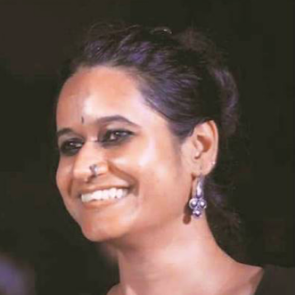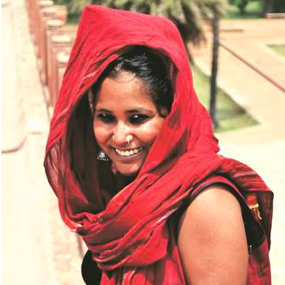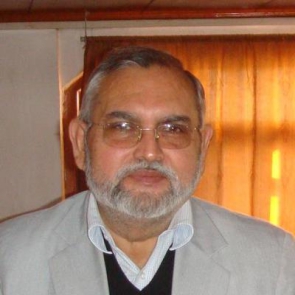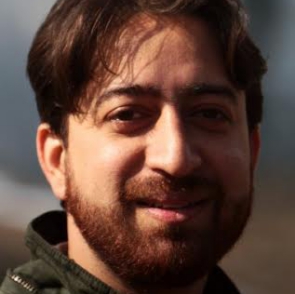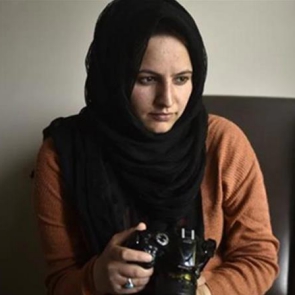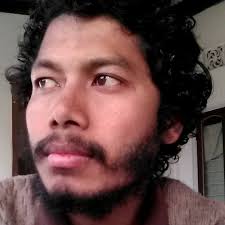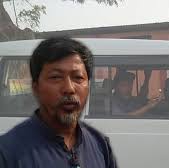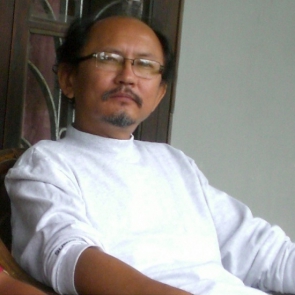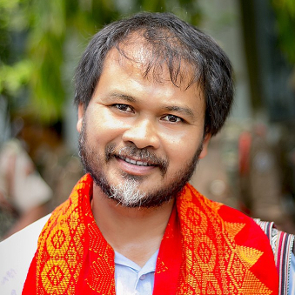Request to raise serious concerns and urge progress on the situation of human rights defenders during the upcoming 15th EU-India Summit of 15 July 2020
Brussels, 29 June 2020
Your Excellencies,
Amnesty International (AI), CSW, Front Line Defenders (FLD), Human Rights Watch (HRW), the International Dalit Solidarity Network (IDSN), Minority Rights Group International (MRG), together with the International Federation for Human Rights (FIDH) and the World Organisation Against Torture (OMCT), within the framework of the Observatory for the Protection of Human Rights Defenders, following up on their respective letters to the office of the HR/VP from January, are writing to ask you to raise concerns regarding the deteriorating condition of human rights defenders in India during the upcoming EU-India Summit, and to take India’s deteriorating human rights record thoroughly into account in the reshaping of the EU-India relationship.
6 June 2020 marked the second anniversary of the arrests of human rights defenders in the Bhima Koregaon case. Now 11 human rights defenders who worked peacefully for the promotion and protection of human rights, especially Dalit and indigenous people’s rights – namely Sudhir Dhawale, Rona Wilson, Shoma Sen, Mahesh Raut, Surendra Gadling, Sudha Bhardwaj, Arun Ferreira, Vernon Gonsalves, Varavara Rao, Gautam Navlakha, Anand Teltumbde – are being held in detention, some since June 2018. Their bail applications have been systematically rejected; just after an opposition-led government took office in Maharashtra state in 2019, the cases were shifted to the jurisdiction under the National Investigation Agency (NIA). Gautam Navlakha and Anand Teltumbde were arrested as recently as April 2020 amidst the current pandemic and despite global best practice and directives set by the Indian Supreme Court to decongest prisons.
Since December 2019, the police have also been arresting human rights defenders who peacefully protested against the discriminatory Citizenship Amendment Act (CAA), National Population Register, and National Register of Citizens. There are over 150 challenges to the CAA pending before the Indian Supreme Court, including from several Indian states and United Nations High Commissioner for Human Rights, but no clarity as to when they will be heard. The authorities have filed charges of sedition, murder, and terrorism under repressive anti-terror and national security laws such as the Unlawful Activities (Prevention) Act and National Security Act against protesters. The authorities have also failed to conduct impartial and transparent investigations into the violence that broke out in Delhi in February 2020 around the protests. They have responded with bias, targeting human rights defenders and government critics but failing to properly prosecute violence by supporters of the ruling Hindu nationalist Bharatiya Janata Party (BJP), or excessive use of force by police officers, and failing to file cases against BJP leaders who advocated violence. Those arrested and currently imprisoned include women human rights defenders Gulfisha Fatima, Natasha Narwal, and Devangana Kalita, and human rights defenders Khalid Saifi, Meeran Haider, Shifa ur Rehman, Dr. Kafeel Khan, Sharjeel Imam, and Asif Iqbal. Woman human rights defender Safoora Zargar recently obtained bail on humanitarian grounds (she is 23 weeks pregnant) and was released on 24 June. Activist Isharat Jahan, who was arrested on 26 February, is also in jail. Human rights defender Akhil Gogoi remains in prison on successive First Information Reports (FIRs) in the midst of the pandemic. The United Nations have called for their immediate release.
The selective targeting of Harsh Mander, who filed a petition in the Supreme Court to consider FIR against political officials who made inflammatory speeches that led to over 50 deaths, is a concerning development. The Delhi police has falsely named Mr. Mander in a FIR as an instigator of the Delhi violence as an intimidation tactic to silent dissent against state oppression. In addition, another prominent human rights activist, Yogendra Yadav, has been named as conspirator.
We are especially alarmed at the attempt to arrest Delhi Minorities Commission Chairman and human rights defender Zafarul Islam Khan under the draconian sedition law, in what seems to be reprisals for the Delhi Minorities Commission initiating a fact-finding into the violence in North-East Delhi that killed at least 53 people, most of them Muslims, and alerting on what appeared to be a planned targeting of the Muslim community by the police during COVID-19.
Incidents of human rights defenders being arrested and targeted due to their criticism of COVID-19 response have been reported from different parts of India. Front Line Defenders has issued urgent appeals on cases involving defenders Dr. Laifungbam Debabrata Roy, Pranab Doley, and Soneshwar Narah from the states of Assam and Manipur since the lockdown.
Human rights defenders in Kashmir, who were just coming out of the blockade which began in August 2019, continue to suffer repression during the pandemic. Journalists Masrat Zahra, Peerzada Ashiq and Gowhar Geelani were targeted for their work. Several other defenders speak of fears of surveillance and the possibility of being targeted while carrying out their work and humanitarian services.
These arrests represent an attempt to silence dissent, in particular from – but not limited to* – minority Muslim voices. In several cases, the police filed new charges under draconian counter-terrorism and sedition laws after activists were granted bail to ensure that they remained in custody, placing them at further risk during the COVID-19 outbreak in overcrowded prisons with inadequate sanitation, hygiene, and access to medical care. COVID-19 restrictions have led to no access to legal counsel or family members for those arrested and allow authorities to avoid protests against the arrests of the defenders, whilst again also violating global best practice and directives set by the Indian Supreme Court to decongest prisons during the pandemic.
We are seriously concerned by the misdirection of the national security apparatus in India towards silencing dissenting voices, ultimately distracting from legitimate security challenges.
The Chair of the Human Rights Subcommittee of the European Parliament has voiced serious concerns over the situation of human rights defenders in India in an open letter to Minister Amit Shah recently. The very question of whether human rights issues were raised with the Indian authorities privately was also asked to the High Representative during a European Parliament AFET/DROI/SEDE debate on 20 April 2020.
The European Union and India’s wish to strengthen their bilateral relationship is “based on shared values of democracy, rule of law, respect for human rights […] and a common interest to further develop bilateral cooperation in every respect.” Commitments have been made by both the EU and India in the Agenda for Action-2020, following the 13th EU-India Summit of 30 March 2016, to “discuss Human Rights issues [...] in the EU-India political dialogue.” In light of these strong statements, AI, CSW, FLD, HRW, IDSN, FIDH, MRG, and OMCT are urging you not to sideline human rights considerations ahead of and on occasion of the upcoming 15th EU-India Summit, but rather to make them an integral part of Summit discussions (on trade, on climate change, on investments, on terrorism especially), with a particular emphasis on the situation of human rights defenders. The EU-India partnership should be strengthened by a frank exchange even on more sensitive human rights issues, especially where they impact the safety of the most vulnerable in society. The deterioration of the rule of law in India should also be particularly worrying to the EU as it is the cornerstone of a partnership and exchanges based on trust and a level playing field.
As the world's two largest democracies, the EU and India should hold each other to the highest standards. For democracy in India to have real meaning for people on the ground, there has to be greater effort to ensure that protections are extended to all, including human rights defenders and dissenting voices. The upcoming EU-India Summit is a very important step in determining the future contours of the strategic partnership, and we are calling on you to ensure the European Union stands firm and holds its ground on the bilateral commitments made on numerous past occasions that any future review and upgrading of EU-India relations be founded on the respect for human rights, democracy, and the rule of law. An enabling environment for human rights defenders is one of the paramount indicators of a functioning democracy, respectful of human rights and based on the rule of law. As the High Representative rightfully pointed out amidst the COVID-19 pandemic: “the role of civil society and human rights defenders is more important than ever to [...] defend human rights, fundamental freedoms and democratic space, and to promote accountability.” We urge you to ensure that supporting human rights defenders remains high on the list of the EU’s priorities, including with India, and to privately and publicly raise human rights concerns with India, especially the targeting of human rights defenders.
We look forward to hearing back from you, and remain at your disposal should you require any further information.
Sincerely,
Amnesty International CSW Front Line Defenders Human Rights Watch International Dalit Solidarity Network International Federation for Human Rights within the framework of the Observatory for the Protection of Human Rights Defenders Minority Rights Group International World Organisation against Torture within the framework of the Observatory for the Protection of Human Rights Defenders *Apart from Natasha Narwal and Devangana Kalita, all human rights defenders arrested in the context of anti-CAA protests that have been reported to FLD are from the Muslim minority in India.